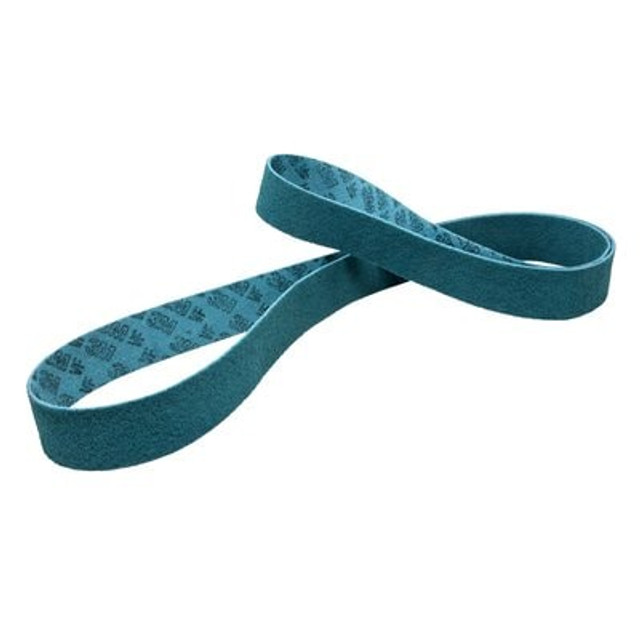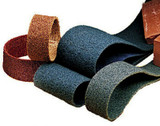

3M Products & Supplies
Scotch-Brite Surface Conditioning Scrim Backed Belt, SC-BS, A/O Very Fine, 3 in x 18 in, 10 ea/Case
A Versatile Abrasive
Scotch-Brite Surface Conditioning Belt work well to remove coarse grind lines, mill marks, or small burrs left by cutting tools or conventional abrasives. Abrasive belts come in many different widths and lengths and are used on a variety of different belt sanding tools for many different applications on both wood and metal.
Ideal for Robotic Finishing
With a wide range of conformability options and high consistency, long-lasting Scotch-Brite industrial abrasives are a great option for robotic metal finishing. Scotch-Brite Surface Conditioning Belts can generate a spec-required, aesthetic finish when used in both manual and robotic processing.
Choose the Right Belt for You
At 3M we offer a broad selection of belts to fit most any industrial belt sander. Wide belt sanders are used for sanding and finishing large wood panels. Medium-width belts fit onto edge or portable belt sanders for sanding or blending wood pieces such as cabinet doors, and narrow belts are used with file tools in metalworking to access small areas or inside corners.
Hard-Working Minerals: Aluminum Oxide and Silicon Carbide
We manufacture Scotch-Brite Surface Conditioning Belts with a choice of silicon carbide or aluminum oxide abrasive mineral. Silicon carbide is a synthetic mineral that is very sharp and commonly used for low-pressure applications such as paint prep and finishing. Aluminum oxide is a hard, blocky mineral that provides high cut-rate and long life. While silicon carbide breaks down faster than aluminum oxide, it produces a finer finish.
An Alternative for Wheels and Discs
Belt sanders are used for rapid grinding, sanding and finishing on a variety of surfaces. Depending on the material being worked, sanding wheels and discs may clog, quickly making them less efficient, while belt sanders continue to sand without clogging because small grooves in the abrasive belt open as they go around the arc of the drive wheel.